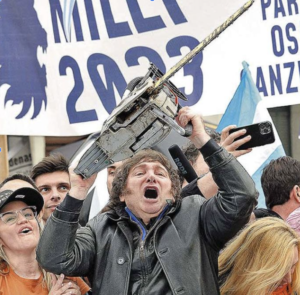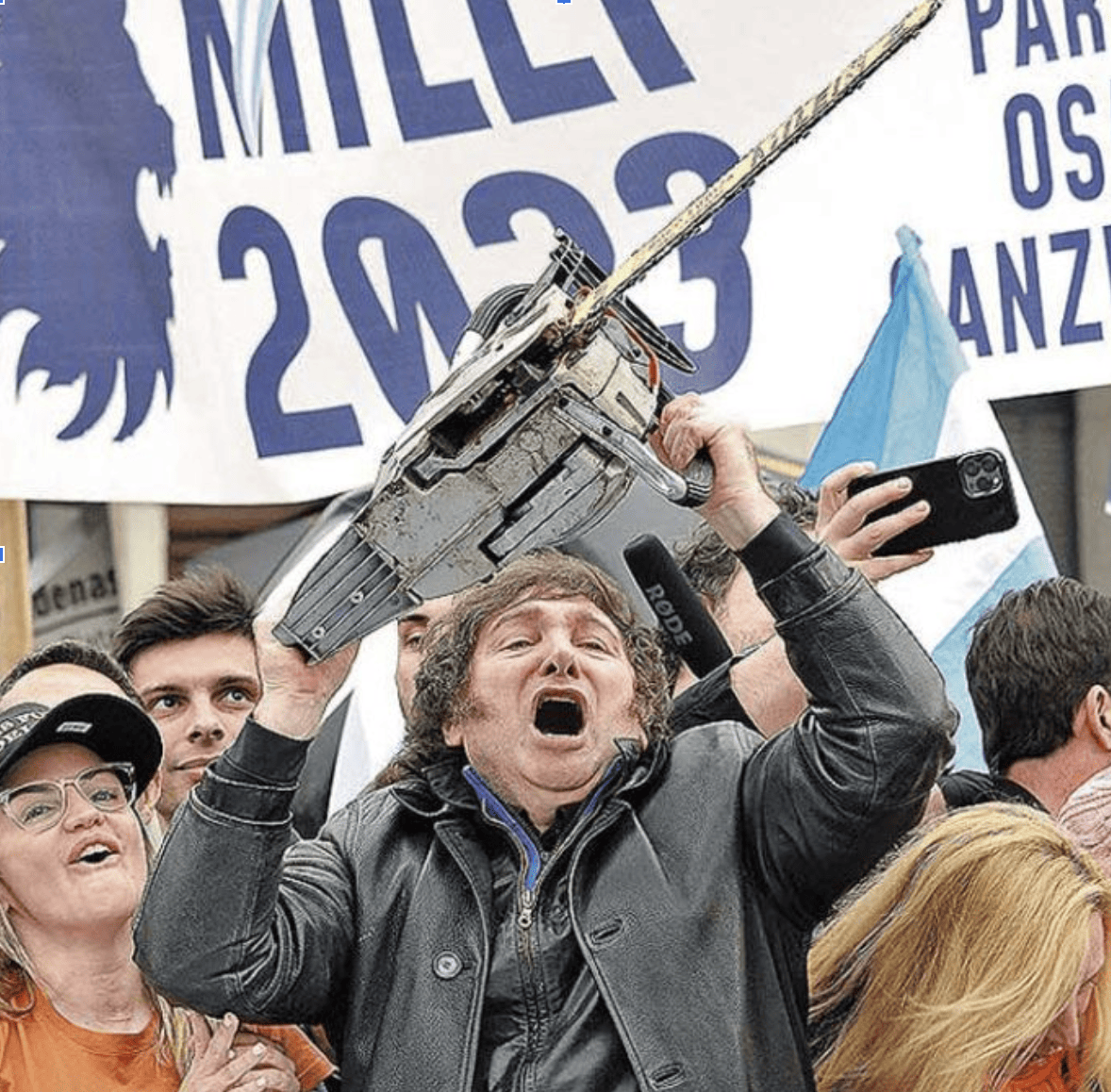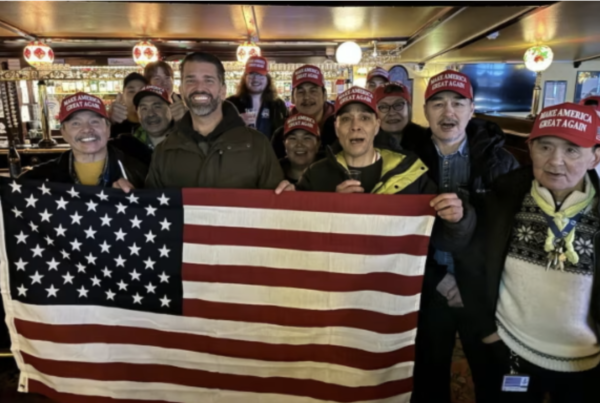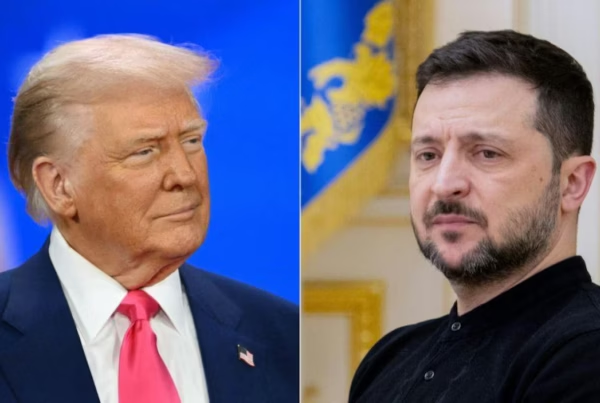
Source: BAtimes.com
The election of Javier Milei in Argentina reminds me of a boomerang: you throw it far away and it comes back with equal force. The question remains whether Argentinians are prepared for the implications of this decision.
A couple of years ago, when I first saw Milei on TV, I found his presence amusing: his exaggerated gestures, the over-the-top phrases he dared to utter, the fervor he exuded in interviews. He was colorful because he was so unrestrained and impossible to not notice. It was predictable that he would grow as a public figure, but I did not imagine that he would reach the heights of the presidency.
The challenges he will face
Milei, an eccentric and magnetic figure, has captivated large numbers of followers with his charisma and impassioned rhetoric. However, can this electoral fervor transition into resolute and coherent leadership equipped to confront Argentina’s challenges?
His rapid ascent to power, transitioning from a TV pundit to president, was propelled by forceful rhetoric amid the country’s economic turmoil. However, beneath this swift rise lies the harsh truth that his party lacks the requisite depth and leadership necessary to effectively govern Argentina.
Milei does not command a majority in Parliament. In the first round of elections in October, his party, La Libertad Avanza, secured only seven out of the 72 seats in the Senate and 38 out of 257 in the Chamber of Deputies. Furthermore, La Libertad Avanza does not hold any governorships in the 23 Argentine provinces, which wield extensive powers in domains such as healthcare and education due to the federal system.
Milei’s push for an extreme libertarian agenda, marked by slashing ministries and consolidating power, presents a staggering challenge due to the glaring lack of seasoned politicians within his movement. Milei’s endeavor involves not just advocating for radical change but also addressing the risks posed by inadequacies within his party. Achieving his vision depends on closing the expertise gap and forming a skilled team to navigate governmental restructuring. Neglecting this could result in the collapse of reform efforts due to administrative shortcomings.
Despite his charismatic appeal, Milei’s political journey has been brief and marked by a lack of allies and substantive legislative contributions. His small and inexperienced team underscores the embryonic nature of his political machinery.
His electorate: to whom does Milei owe his success?
Milei’s ascent stems from his adoption of a far-right ideology, offering an alternative to Argentina’s dominant political landscape, which has historically swayed between center-right factions and Peronism. This continual influence has led to persistent economic crises, contributing to a decline in the populace’s living standards. Economically, Argentina grapples with hyperinflation, an overwhelming debt owed to the International Monetary Fund, rising unemployment rates, and soaring poverty levels. These economic challenges have defined the daily realities of Argentinians in recent years.
In the midst of an increasingly entrenched crisis, Milei’s call for change has struck a chord, particularly resonating with young male voters seeking an alternative to a political class seen as an entrenched elite. This perception stems from the belief that the existing establishment utilizes its power to perpetuate its privileges while neglecting the needs of the population. The perceived failure of the outgoing government under Alberto Fernandez to propose any substantial departure from the status quo has further fueled this sentiment.
The comparison between Milei and Trump often revolves around their unorthodox approaches and outspoken, often controversial, rhetoric, suggesting shared similarities in their unconventional and polarizing styles. However, the cores of their respective ideologies actually diverge quite significantly. Milei’s victory speech, while echoing some rhetoric of breaking entrenched power, doesn’t necessarily make him subservient to or a direct product of Trumpism.
Instead, both figures emerge from a broader disorientation stemming from the negative impacts of globalization. Globalization in Argentina has significantly influenced Milei’s distinctive stance, tailored to the country’s specific experience with the global economy.
So, while there might be surface-level comparisons drawn between Milei and Trump, their ideologies, motivations, and the contexts in which they’ve risen to prominence differ significantly. Milei’s uniqueness stems from his response to Argentina’s particular experience with globalization rather than being a mere replication of Trump’s phenomenon.
However, both Trump and Milei possess a knack for leveraging the media to magnify their actions and grab attention. Their commitment lies in cultivating brash, aggressive, and seemingly eccentric personas that verge on the comical, prioritizing the construction of an outlandish image over the presentation of pragmatic ideas. Milei’s fixation on a flamboyant image eclipses the demand for a capable team. His captivating persona masks the stark deficiencies in the expertise of those around him.
Trump and Milei’s unconventional approaches thrust them into the spotlight, causing the media to inundate us with videos of Milei passionately shouting slogans. Rather than undermining him, this ironically amplified the media coverage he sought. This strategy has resonated with voters seeking a change in their country. It’s precisely the media that have turned a ludicrous and surreal character into the actual Argentine president.
This is why we can say that on November 19, in Argentina, the media won, presenting an unstable and unreliable person as a presidential option. On November 19, together with Milei, social networks won, capable of manipulating the most important decisions for people’s lives and the destinies of countries with videos and memes.
On November 19, Milei did win, and the Argentinians lost.
Other posts that may interest you:
- The Trouble with ‘Ecocide’
- Carbon dioxide removal – hit or miss?
- Local Victories for Turkish Opposition — A Sign of Hope?
- Are France and Japan a Mismatch Made in Heaven?
- A Reflection on Dark Tourism
Discover more from The Sundial Press
Subscribe to get the latest posts sent to your email.





